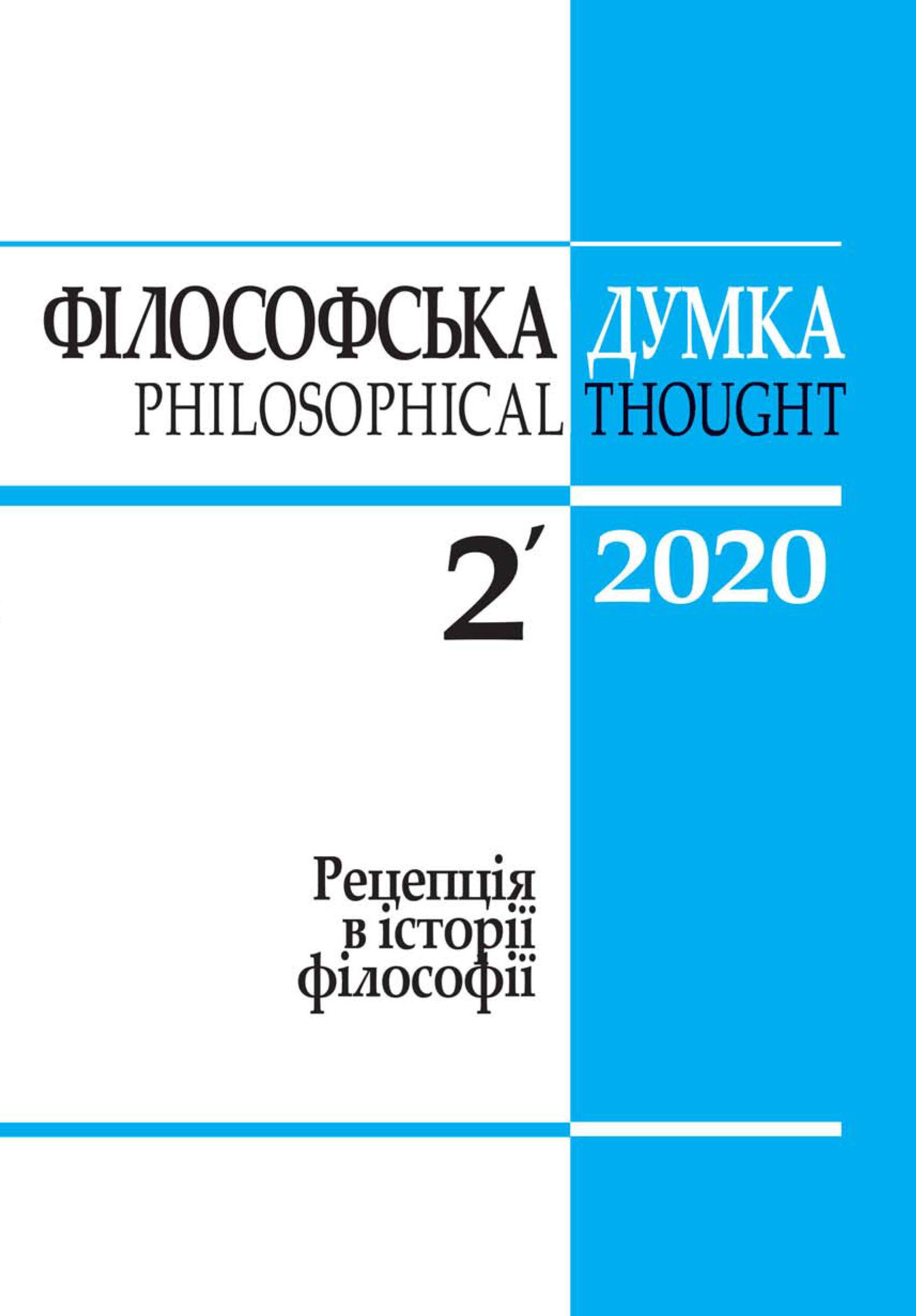Dmytro Sepetyi. John Foster’s phenomenalistic idealism under scrutiny
PHILOPSOPHY OF MIND
DOI:
https://doi.org/10.15407/fd2020.02.102Keywords:
physical realism, phenomenalistic idealism, perception, intrinsic content, empirical immanenceAbstract
The article discusses John Foster’s last attempt at refutation of physical realism and defence of phenomenalistic idealism. Main Foster’s arguments against physical realism, the argument from «the problem of perception» and the argument from the inscrutability of intrinsic content of the external reality are scrutinized and found wanting. The argument from «the problem of perception» is shown to fail against «the decompositional view» because it falsely assumes that the perception of an object, if it is mediated by some processes and states, requires the perception of those mediating processes and states. The argument from the inscrutability of intrinsic content is found unsuccessful because physical realism can accommodate Kantian agnosticism about intrinsic contents, while holding that physical reality is knowable in all structural and dynamical respects that in fact constitute the realm of study of natural sciences. Foster’s further argument that involves the spatial swap scenario is shown to beg the question: a physical realist can plausibly and arguably deny either the logical possibility of such a scenario, or Foster’s idealism-favouring construal of it. On the other hand, it is pointed out that Foster’s treatment of the timing of the prehuman history of the Universe is gravely unsatisfactory and suggests the refutation of phenomenalistic idealism.
References
Bird, A. (2016). Overpowering: How the Powers Ontology Has Overreached Itself. Mind, 125, 341-383.
https://doi.org/10.1093/mind/fzv207
Chakravartty, A. (2003). The Dispositional Essentialist View of Properties and Laws. International Journal of Philosophical Studies, 11 (4), 393-413.
https://doi.org/10.1080/0967255032000136498
Foster, J. (1982). The Case for Idealism. London: Routledge & Kegan Paul.
Foster, J. (2008). A World for Us: The Case for Phenomenalistic Idealism. Oxford, New York: Oxford University Press.
https://doi.org/10.1093/acprof:oso/9780199297139.001.0001
Garrett, B. (2010). Review. John Foster. A World For Us: The Case for Phenomenalistic Idealism. Philosophy in Review, 30 (6), 397-399.
Harre, R., Madden, E. (1975). Causal Powers. Oxford: Blackwell.
Langton, R. (1998). Kantian Humility. Oxford, New York: Oxford University Press.
Langton, R. (2004). Elusive Knowledge of Things in Themselves. Australasian Journal of Philosophy, 82, 129-136.
https://doi.org/10.1080/713659791
Lewis, D. (2009). Ramseyan Humility. In: D. Braddon-Mitchell, R. Nola (Eds.), Conceptual Analysis and Philosophical Naturalism (pp. 203-222). MIT Press.
https://doi.org/10.7551/mitpress/9780262012560.003.0009
Madell, G. (2009). Review. A World for Us: The Case for Phenomenalistic Idealism. By J. Foster. Philosophy, 84 (2), 307-310.
https://doi.org/10.1017/S0031819109000278
Popper, K. (1983). Realism and the Aim of Science. London, New York: Routledge.
Robinson, H. (1982). Matter and Sense. Cambridge, London, New York: Cambridge University Press.
https://doi.org/10.1017/CBO9780511735806
Robinson, H. (1985). The General Form of the Argument for Berkleyan Idealism. In: J. Foster, H., Robinson (Eds.), Essays on Berkeley: A Tercentennial Celebration (pp. 163-186). New York, Oxford: Oxford University Press.
Shoemaker, S. (1980). Causality and Properties. In: P. van Inwagen (Ed.), Time and Cause: Essays Presented to Richard Taylor (pp. 109-135). Dordrecht: Reidel.
https://doi.org/10.1007/978-94-017-3528-5_7
Whittle, A. (2008). A Functionalist Theory of Properties. Philosophy and Phenomenological Research, 77, 59-82.
Downloads
-
PDF
Downloads: 474
Published
How to Cite
Issue
Section
License
Authors who publish with this journal agree to the following terms:
- Authors retain copyright and grant the journal right of first publication.
- Authors are able to enter into separate, additional contractual arrangements for the non-exclusive distribution of the journal's published version of the work (e.g., post it to an institutional repository or publish it in a book), with an acknowledgement of its initial publication in this journal.
- Authors are permitted and encouraged to post their work online (e.g., in institutional repositories or on their website) prior to and during the submission process, as it can lead to productive exchanges, as well as earlier and greater citation of published work (See The Effect of Open Access).


